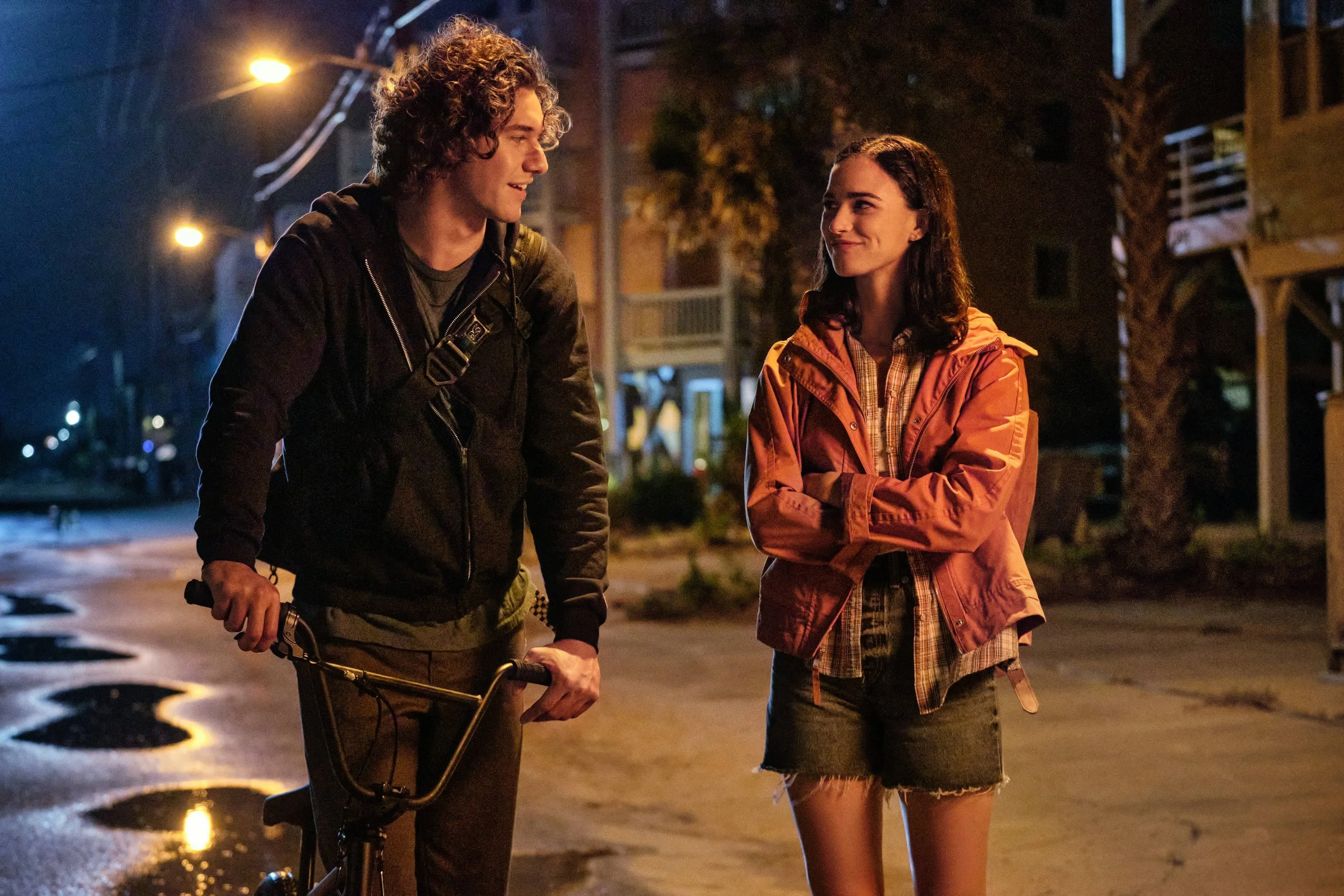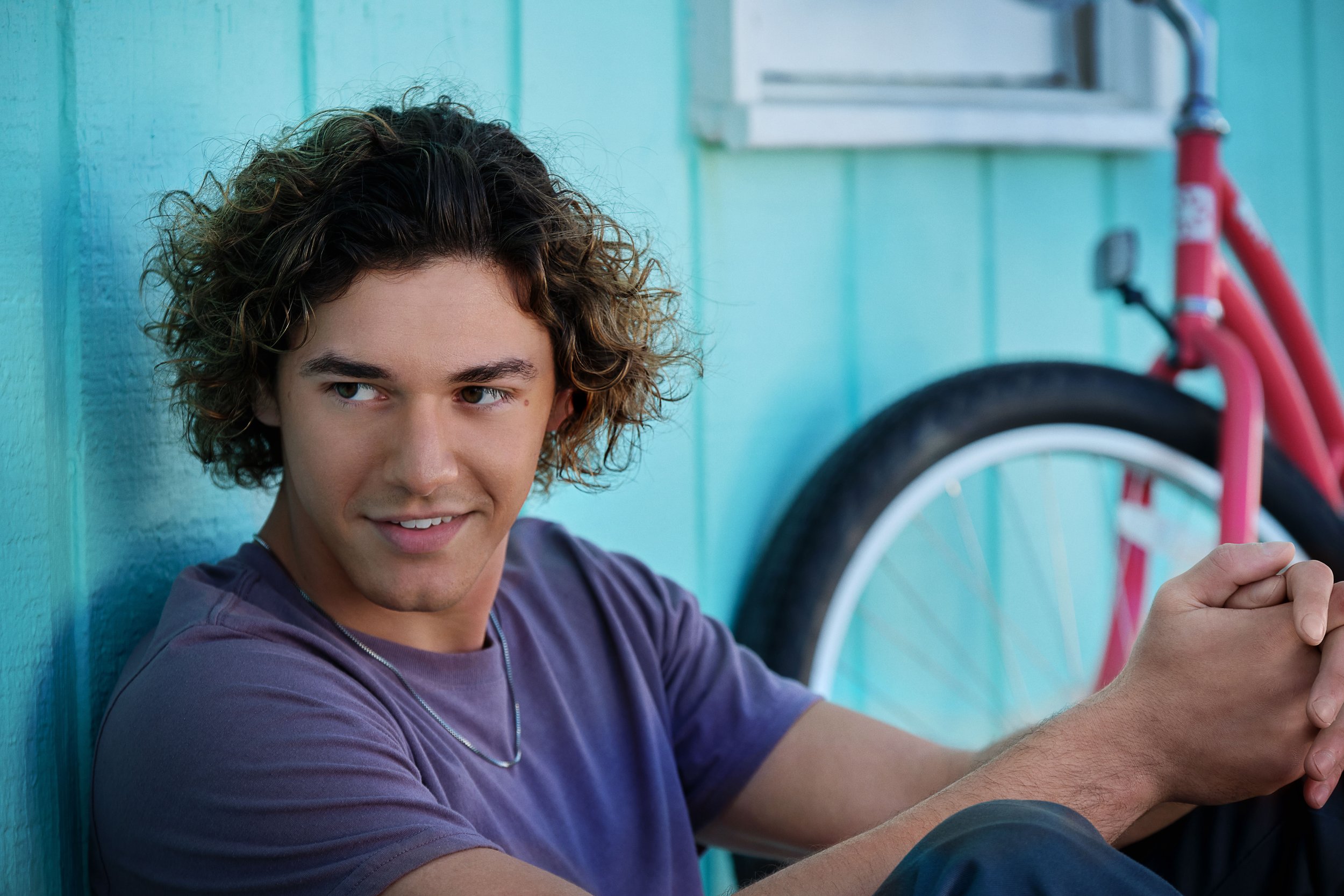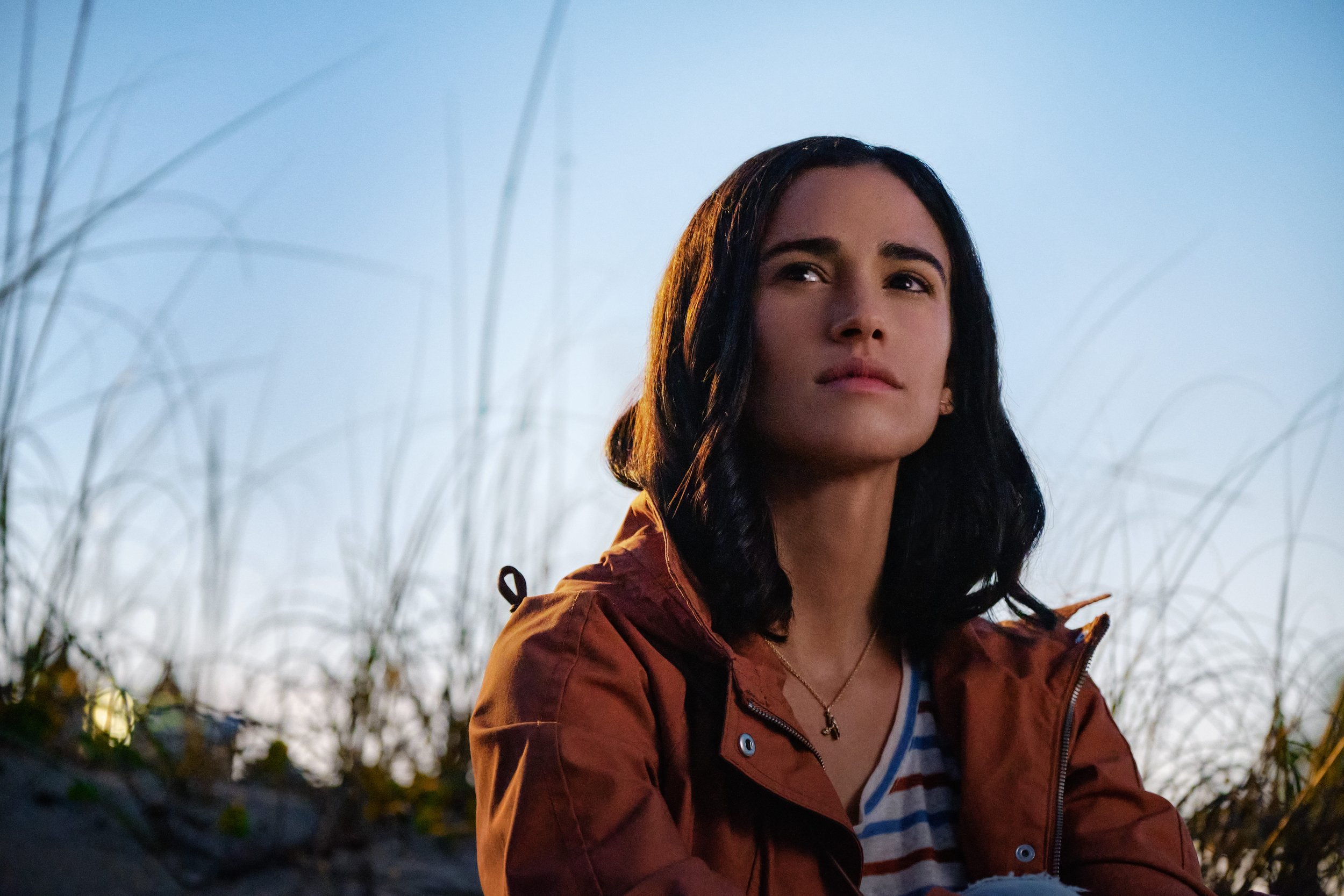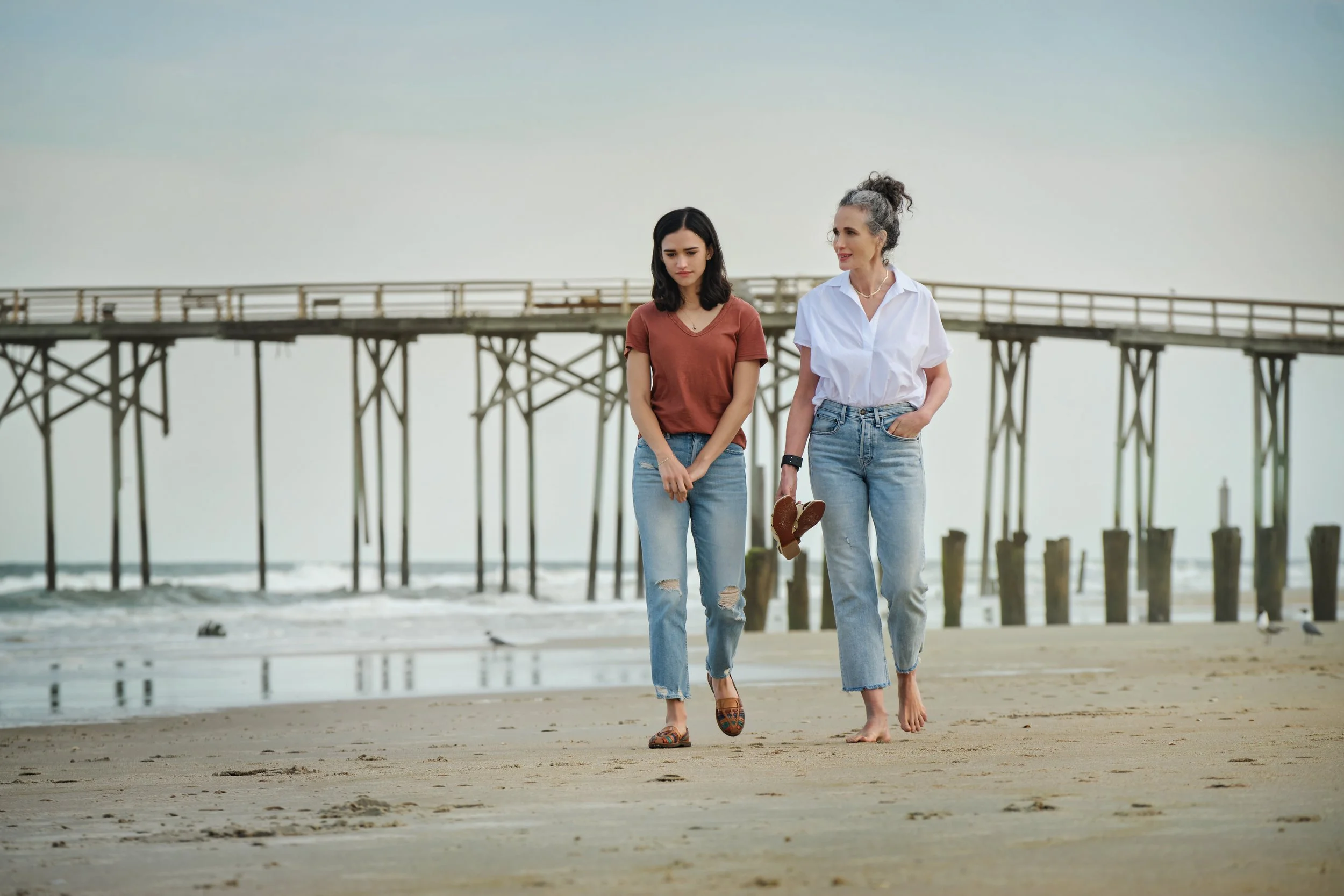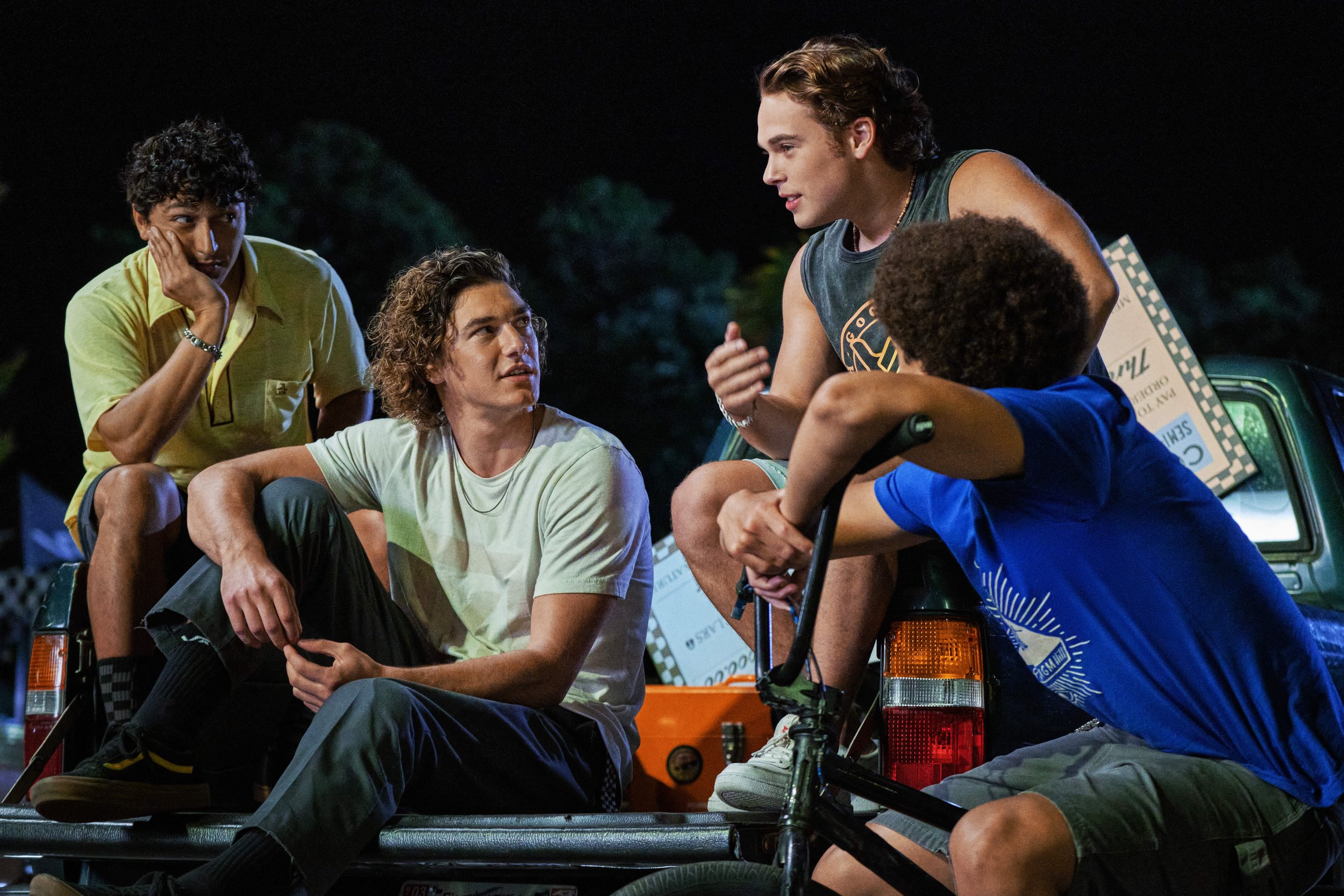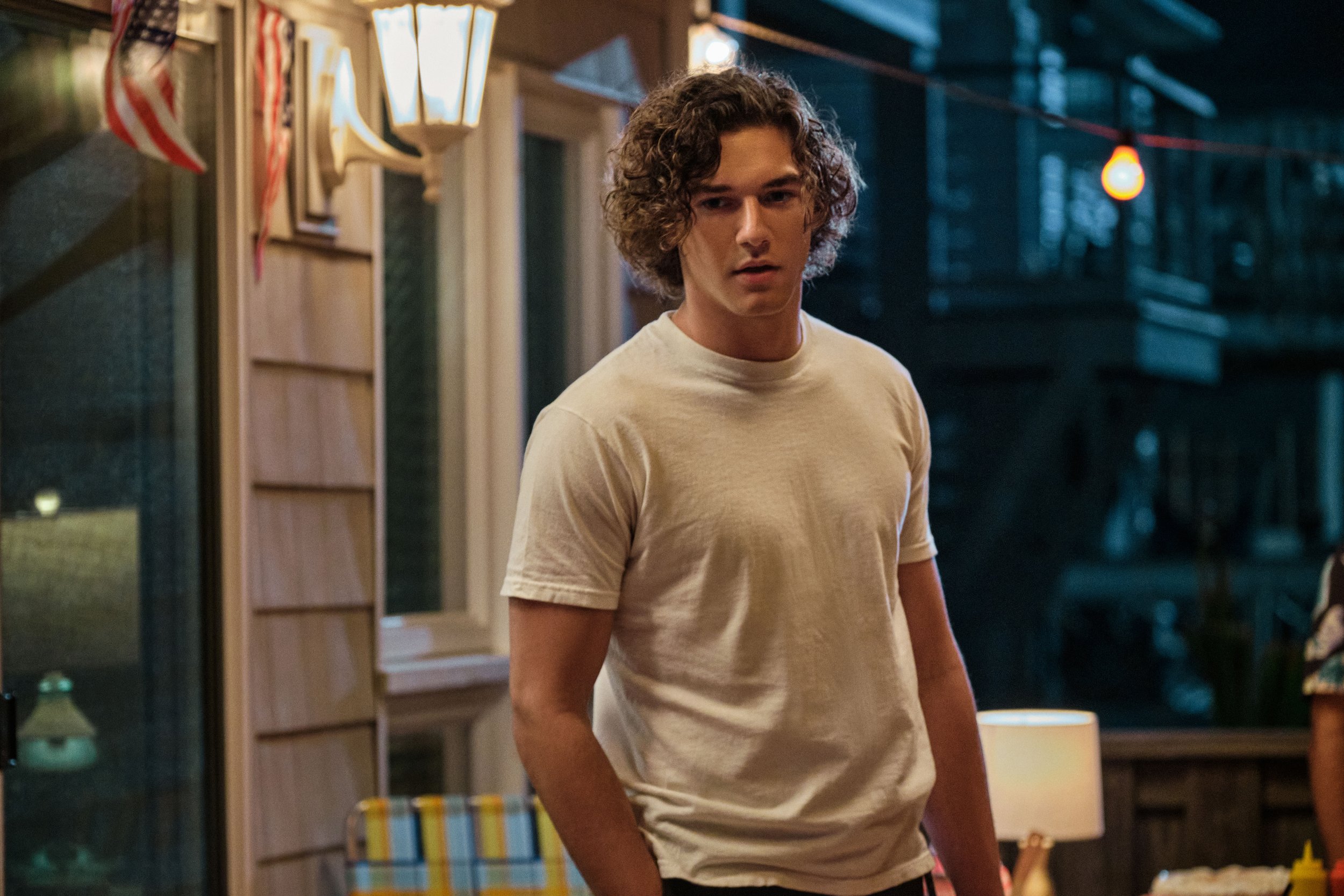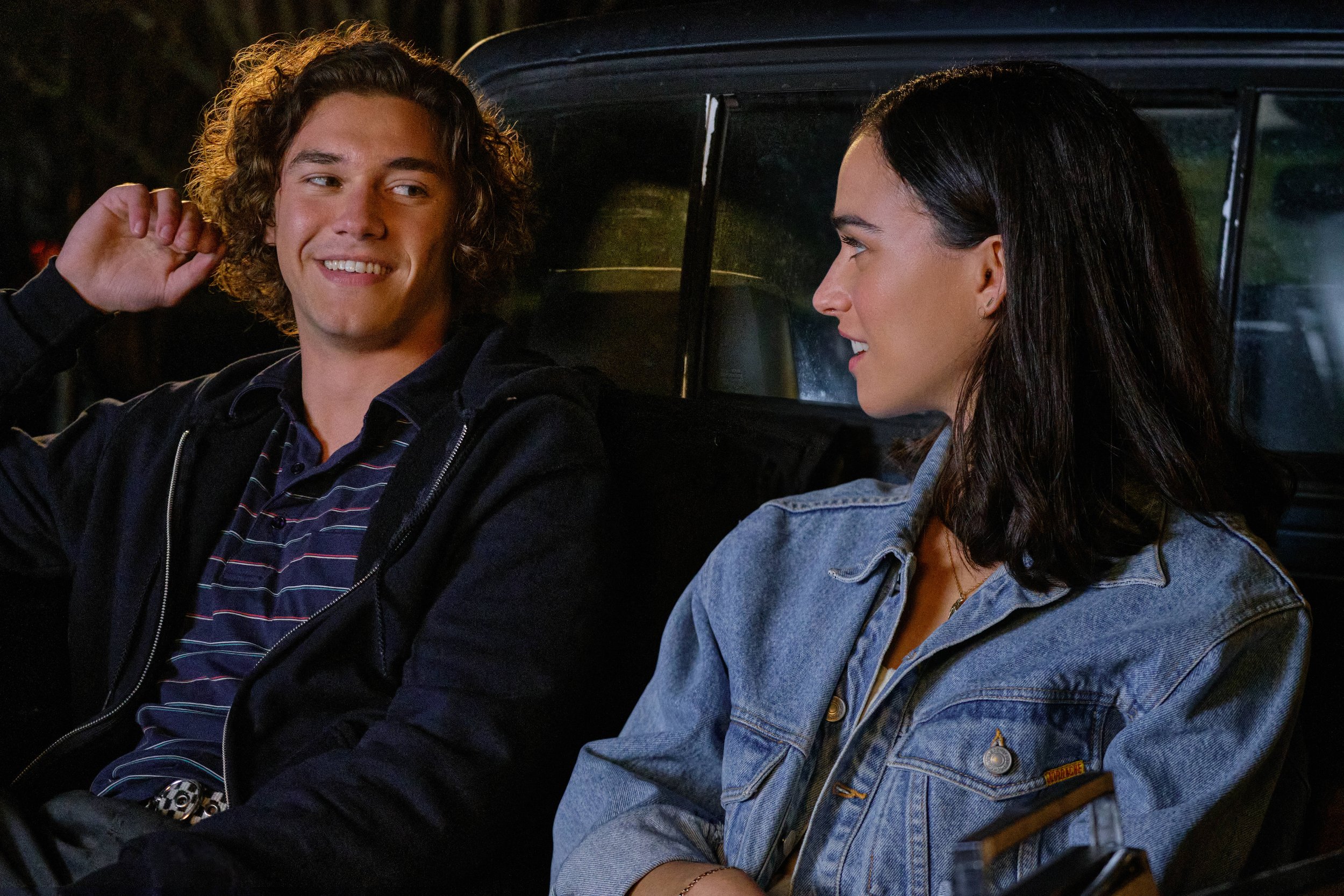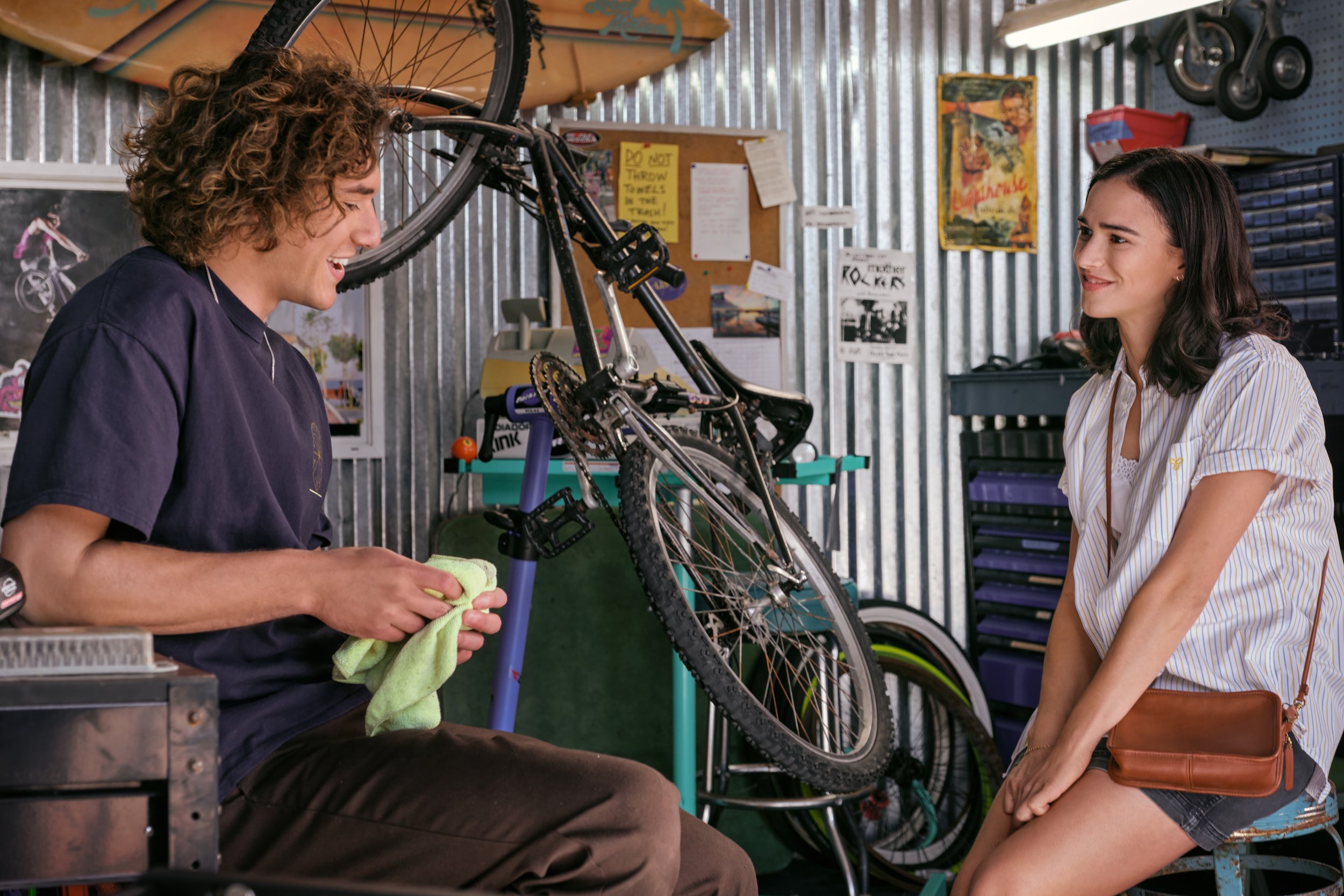MOVIE REVIEW: Along for the Ride
ALONG FOR THE RIDE– 3 STARS
LESSON #1: BEWARE THE “MANIC PIXIE DREAM BOY”-- On the surface in Along for the Ride, the arrival of Belmont Cameli’s enigmatic Eli Stock provides the main character of Auden, played by Am I OK’s Emma Pasarow, with the male equivalent of the Manic Pixie Dream Girl trophy, namely the Manic Pixie Dream Boy. The term, coined by Anna Breslaw, can be described as “the self-mythologizing 'free-spirited' dude who’s determined to make the female protagonist’s life magical, whether they want it or not." Eli is indeed that dude and his luscious curls cannot help but give off Heath Ledger heat from 10 Thing I Hate About You. Luckily, Along for the Ride takes a different and milder route thanks to the strong and confident female voices inside and outside of the story being told.
Auden is a single child of divorce between her affluent and empowered mother Victoria (Andie MacDowell) and her successful author father Robert (Dermot Mulroney). After years of being the perfect straight arrow college-bound scholar with no social life to show for it, she is an intellectual loner. However, Auden is heart-set on spreading some underdeveloped wings before undergrad. She has made the steps to spend the summer living with Robert and working a clerical job at her younger stepmother Heidi’s (Kate Bosworth) boutique in the fictional North Carolina coastal town of Colby.
Entering this sunny vacation spot of southern hospitality and insular gossip, most of the available teens Auden’s age, including a trio of shop co-workers led by Maggie (Laura Kariuki of The Wonder Years), are carefree and set with their established friend circles. Auden comes off as a bit of an over-serious wallflower that initially rubs her potential new peers the wrong way, making it hard to fit in. She would rather spend her nights sipping coffee and journaling on the pier than partying on the beach.
It’s on these late nights where the talented BMX rider Eli pedals around avoiding the same social crowds for different reasons. Like this second description from No Film School’s Alyssa Miller, Eli’s MPDB is a “kind of quirky, attractive, and misunderstood guy who values the female protagonist for something that isn’t related to her career or personal goals.” That’s him to T with his own mysteries, flaws, and past losses to boot. Getting to know Auden, Eli takes charge of a “quest” to help Auden check off the broken rules, new skills, and fresh experiences populating her pre-college bucket list.
LESSON #2: WHAT WOULD MAKE YOUR SUMMER END-OF-INNOCENCE LIST?-- Along the Ride viewers will get to this middle self-discovery section between Eli and Auden and, depending on their age, formulate what they would do in their places or remember their own attempts at adventure from their final summer of childhood after high school. This may be a Millennial era and an affluent setting of privilege on display, but you will find many of the shared activities and traditions to be timeless and universal. Go ahead and let the movie either craft or stoke those future or past memories. Join that spry energy.
At this point, if you feel that Along for the Ride is locked on a very predictable course towards every foregone conclusion you’ve seen with other Manic Pixie Dream romances or coming-of-age stories, prepare to be delightfully surprised and convincingly impressed. This one has welcome maturity and a patient heart. Debuting director Sofia Alvarez, the successful writer of the Netflix hit To All the Boys I’ve Loved Before and its sequel, is the person to praise for this enriched improvement from the usual tropes.
Thanks to how Alvarez wrote the character from Sarah Dessen’s source novel and Pasarow’s self-assured poise in the role, Auden isn’t a nebbish ugly duckling nerd that sticks out like a sore thumb for an obvious transformation centered on appearances. She’s also not a powder keg of pent-up desire demanding taboo-bursting passion as a means of getting attention. This Auden is already beautiful, ready for a bright future, and knows her worth for romantic and platonic relationships. Her smile barely contains her intrigue. It’s a gateway to her spirit. The goal for her in Along for the Ride is to expand what already makes her great.
The same can be said of Eli and his MPDB label-challenging traits. Yes, Cameli’s character is a handsome, screen-written gift to Auden’s interests, but he too is a mostly finished product, so to speak. He has his own mellow strengths, enthusiasm, and morals, and they don’t include the typical horndog drive for female conquests or bad boy toxicity. The actor has the “it factor” between his ears and much as the version that is easy on the eyes. The goal for him is to heal a past tragedy and return him to a place where he can belong with others again.
So often, these teen movies have a roller coaster of ludicrous events meant for characters to “find themselves.” For the most part, Auden and Eli already have. They are above the silliest dares. Put them together and they are, quite pleasingly, a unique combination of souls. Against much of the Manic Pixie Dream tendency, the transformational effects are not one-sided.
LESSON #3: ACT LIKE AN ADULT AND GET RESPECTED AND TREATED AS AN ADULT– Preferring analog baubles and quality time choices do not make Auden and Eli “old souls.” Their age and era do not automatically make them some kind of insufferable, impatient Millennial “new soul,” who don’t get the larger world either. In concert through the course of the movie, we have two characters making prudent and wise decisions for themselves and others bound with thoughtful empathy. They are actively avoiding flippant choices driven by angst, rebellion, or hormones.
You know what that makes Auden and Eli? Adults. Simple as that, even if the movie cheats a little to have them played by a 24-year-old man and a 26-year-old woman. That convenience aside, a respectful and intelligent approach of optimism like this from Alvarez is appreciated. You have two characters who think they need to become different versions of themselves when what’s most desirable is exactly the good people they already are.
To its credit and nicely lifted by music by Beach House and a peppy soundtrack, Along for the Ride is a positive story for connections built on trust and friendship first and attraction second. It is not just some party movie of hot bodies wooing each other with little to no consequences. Love and identity are the center and they don’t come easy. Nothing is automatic or preachy for the characters. Alvarez has created a lush space safe for the expression and supportive healing of personal emotions heavier than the usual wants and needs of youth.
LOGO DESIGNED BY MEENTS ILLUSTRATED (#1034)

